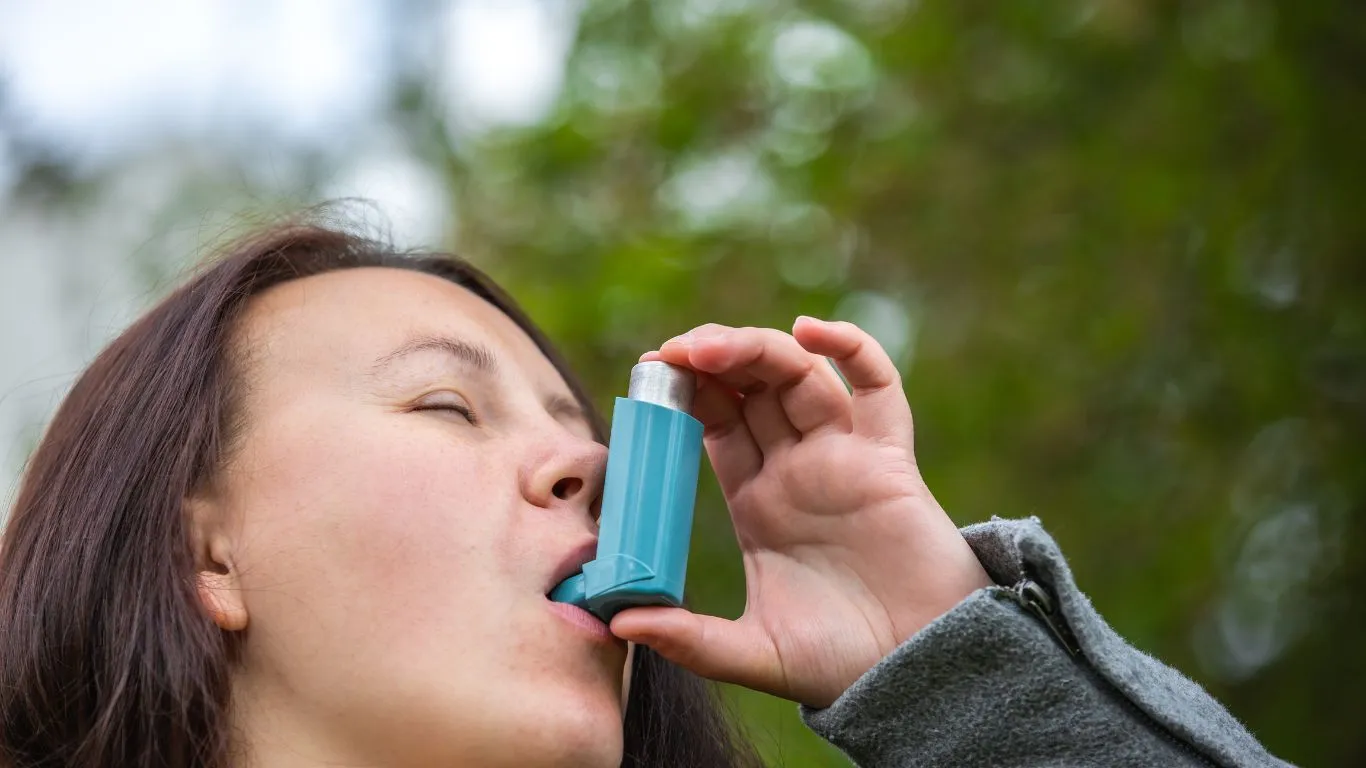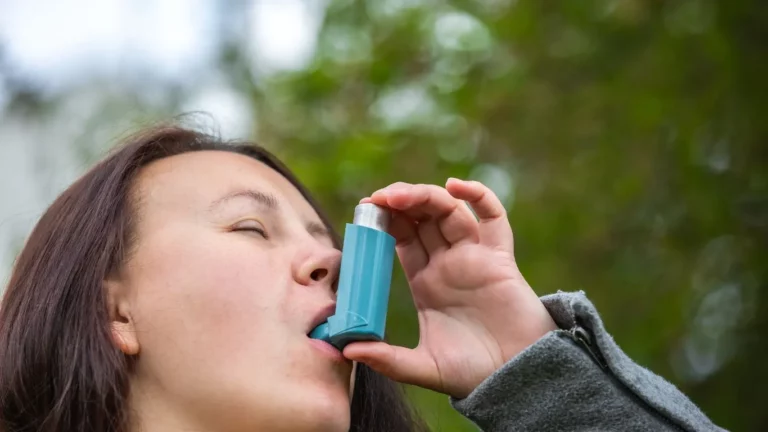How to Clean Your Asthma Inhaler Properly 🫁✨ (Easy Tips for Better Health)
Hey, Are You Cleaning Your Inhaler?
If you’re living with asthma, your inhaler is probably your best friend, right? But did you know that keeping it clean is just as important as knowing how to use it? A dirty inhaler can mess with your meds, lead to clogging, and even cause nasty infections. So, let’s talk about how to keep that little lifesaver in top shape.

Why Cleaning Your Inhaler Matters 🧼
You want your inhaler to work when you need it most. But if it’s clogged or dirty, it’s not going to do its job. And hey, you don’t want to be dealing with stuff like mold or germs in your meds, right? Cleaning your inhaler isn’t just about hygiene—it’s about making sure you’re getting the full dose of what you need to breathe easy.
How to Clean Your Asthma Inhaler (Step-by-Step) 🧴
Now, let’s get down to business. Here’s how you can clean your inhaler properly, so you don’t have to worry about it failing you:
Step 1: Take Apart Your Inhaler 🚫
First things first: take the canister out of the plastic casing. Don’t clean the canister itself—it’s not gonna do well with water. You just want to focus on the plastic parts.
Step 2: Wash the Plastic Parts
Rinse the plastic parts under warm water. No soap, though! That stuff can leave residue. Shake off any excess water, then let it air dry.
Step 3: Clean the Mouthpiece
Grab a soft cloth or tissue and wipe down the mouthpiece. It’s the part that goes in your mouth, so you want to make sure there’s no dust or grime on it.
Step 4: Let It Dry
Let everything dry completely—24 hours is usually good. Don’t rush this step! If you try to dry it with a cloth or tissue, you might leave fibers behind. Just let it air dry.
Step 5: Put It Back Together
Once everything is dry, pop the canister back into the casing, and you’re all set! Easy, right?

Common Problems and How to Fix Them 🚨
So, sometimes things go wrong even when you’ve been cleaning your inhaler like a champ. Here’s how to troubleshoot:
Clogged Inhaler 🏠
If your inhaler’s not working properly, it could be clogged. That can happen over time with medication buildup.
Fix it: Clean the mouthpiece and other parts, and make sure there’s no blockage.
Inhaler Won’t Spray 🧯
If it doesn’t spray, the canister could be stuck, or the mouthpiece might be misaligned.
Fix it: Take it apart, clean it, and make sure the canister is seated properly. Try pressing it a few times in the air to clear any blockage.
Weird Smells 🌬️
If your inhaler smells funky, it’s probably due to old meds or poor cleaning.
Fix it: Thorough cleaning should do the trick, but if it keeps happening, it might be time to replace the inhaler.

Real-Life Success Stories 🎉
Sarah’s Clean Inhaler, Better Breathing
Sarah used to feel like her inhaler wasn’t helping much anymore. After learning how to clean it properly, she noticed a big difference. It worked more effectively, and she didn’t need to use it as often. She swears that keeping it clean was the game-changer for her asthma control.
John’s Fewer Infections
John was constantly dealing with chest infections, even though he used his inhaler regularly. After his doctor suggested cleaning his inhaler more often, the infections slowed down, and his asthma got easier to manage. He says cleaning the inhaler became a must-do part of his routine.

Key Takeaways ✍️
• Regularly cleaning your inhaler helps it work better and reduces the risk of infections.
• Cleaning is simple—just wash the plastic parts and let them dry completely.
• If something’s wrong with your inhaler, like a clog or weird spray, cleaning it is usually the fix.
FAQs 🤔
Q: How often should I clean my inhaler?
A: Once a week is a good rule of thumb, but if you’re using it a lot or notice any issues (like clogging), clean it more often.
Q: Can I use soap to clean it?
A: Nope, no soap! Water is all you need. Soap can leave behind stuff that could mess with the medication.
Q: What if I lose a piece of my inhaler?
A: If something goes missing, don’t try to use it. Get a replacement part from your doctor or pharmacy.
Troubleshooting Common Issues 🚨
So, sometimes things go wrong even when you’ve been cleaning your inhaler like a champ. Here’s how to troubleshoot:
Clogged Inhaler 🏠
If your inhaler’s not working properly, it could be clogged. That can happen over time with medication buildup.
Fix it: Clean the mouthpiece and other parts, and make sure there’s no blockage.
Inhaler Won’t Spray 🧯
If it doesn’t spray, the canister could be stuck, or the mouthpiece might be misaligned.
Fix it: Take it apart, clean it, and make sure the canister is seated properly. Try pressing it a few times in the air to clear any blockage.
Weird Smells 🌬️
If your inhaler smells funky, it’s probably due to old meds or poor cleaning.
Fix it: Thorough cleaning should do the trick, but if it keeps happening, it might be time to replace the inhaler.
Case Studies / Success Stories 🎉
Sarah’s Clean Inhaler, Better Breathing
Sarah used to feel like her inhaler wasn’t helping much anymore. After learning how to clean it properly, she noticed a big difference. It worked more effectively, and she didn’t need to use it as often. She swears that keeping it clean was the game-changer for her asthma control.
John’s Fewer Infections
John was constantly dealing with chest infections, even though he used his inhaler regularly. After his doctor suggested cleaning his inhaler more often, the infections slowed down, and his asthma got easier to manage. He says cleaning the inhaler became a must-do part of his routine.
Key Takeaways ✍️
• Regularly cleaning your inhaler helps it work better and reduces the risk of infections.
• Cleaning is simple—just wash the plastic parts and let them dry completely.
• If something’s wrong with your inhaler, like a clog or weird spray, cleaning it is usually the fix.
FAQs 🤔
Q: How often should I clean my inhaler?
A: Once a week is a good rule of thumb, but if you’re using it a lot or notice any issues (like clogging), clean it more often.
Q: Can I use soap to clean it?
A: Nope, no soap! Water is all you need. Soap can leave behind stuff that could mess with the medication.
Q: What if I lose a piece of my inhaler?
A: If something goes missing, don’t try to use it. Get a replacement part from your doctor or pharmacy.
References 📚
1. American Lung Association – “Inhaler Care 101”
2. Mayo Clinic – “How to Clean Your Asthma Inhaler”
3. National Asthma Education Program – “Inhaler Maintenance Tips”
Disclaimer ⚠️
This post is just for general advice. If you have any concerns about your inhaler or asthma treatment, always check with your healthcare provider.
Call to Action 🔔
Keeping your inhaler clean is one of the easiest ways to manage your asthma better. So, take a few minutes each week to give it a good cleaning. If you found this guide helpful, share it with friends who might need it! Got any questions? Drop them in the comments, and I’ll be happy to help.

Bianca Nala is a compassionate Nurse Practitioner with a strong background in primary and respiratory care. As a health writer for Healthusias.com, she combines her clinical expertise with a talent for clear, relatable storytelling to help readers better understand their health. Bianca focuses on topics like asthma, COPD, chronic cough, and overall lung health, aiming to simplify complex medical topics without losing accuracy. Whether she’s treating patients or writing articles, Bianca is driven by a single goal: making quality healthcare knowledge accessible to everyone.







